Movies and TV
There’s Something Terribly Wrong With “Poor Things”
“Poor Things” won numerous Oscars and was universally praised by mass media. However, all of these critics purposely ignore the fact that the movie depicts a child in a woman’s body having sex with older men. And then it gets worse. Here’s a look at this bizarre movie and its underlying messages.

Warning: Behemotic spoilers ahead!
The least one can say is that mass media loved Poor Things. Nearly every news article gushed over it while award ceremonies threw all their trophies at it, including numerous Oscars.
Yes, they really want us to watch and love the movie. More importantly, they want us to “soak up” its messages and underlying philosophy. Of course, there is a reason for this: Poor Things conveys, in an admittingly creative way, the twisted worldview the elite wants us to adopt. And that includes the sexualization of children.
On a surface level, Poor Things bears all the makings of a great film. The wardrobe, the set designs, and the performances are all top-notch. However, on a deeper level, something is “off” about this movie. It provokes in many a gut feeling that they’re watching something … wrong.
In a way, the movie wants us to feel that way. The music is strident, atonal, and dissonant, creating an unsettling atmosphere. Some scenes seem custom-made to be challenging to watch and difficult to stomach.
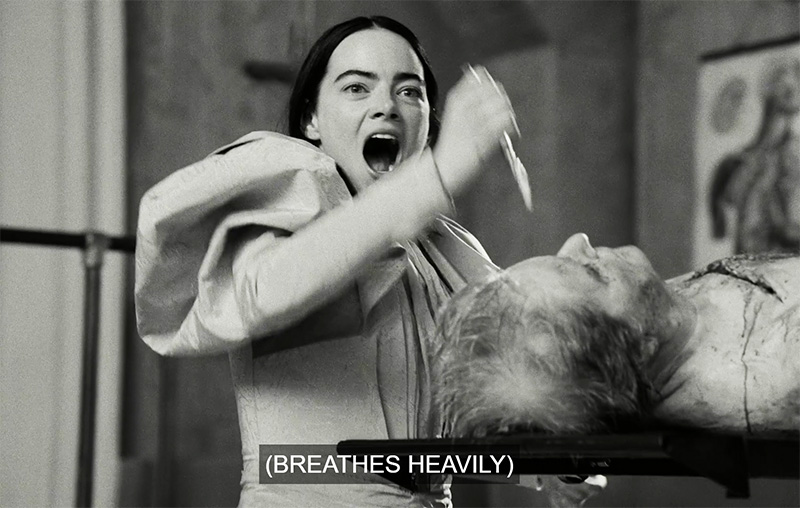
Bella (who literally has the brain of a child) plays with the penis of a dead man to then repeatedly stab him in the eyes using a scalpel. This is just … wrong.
While the movie was based on Alasdair Gray’s 1992 novel of the same name, most of the book’s political commentary and literary nuances were evacuated to mainly focus on a single thing: Emma Stone acting like a child and having sex with older men.
In many ways, Emma Stone’s performance is reminiscent of Ana de Armas in Blonde. As explained in my article about this brutal movie, numerous scenes appeared to be specifically written to place Ana de Armas in situations where she is naked and sexually degraded. While the movie was about Marilyn Monroe, it was also about Ana de Armas herself taking part in degrading, near-pornographic scenes as some kind of Hollywood “rite of passage.” And, despite the fact that viewers panned Blonde, de Armas was rewarded with an Oscar nomination for Best Actress.
As we’ll soon see, Emma Stone underwent a similar process in Poor Things. She’s often completely naked and involved in near-pornographic scenes (often degrading) involving numerous men. She was also rewarded by winning the Oscar for Best Actress in 2024.
Ironically, the movie is said to be “feminist.” Although it was written by a man, directed by a man, and based on a book written by a man. But that doesn’t matter because, through symbolism, the core message goes way beyond feminism. It is about distorting everything that is pure, good, and natural and embracing the exact opposite. Here’s a look at Poor Things.
Ungodly Creation
Poor Things starts off with its funniest gag, which is entirely unintentional.
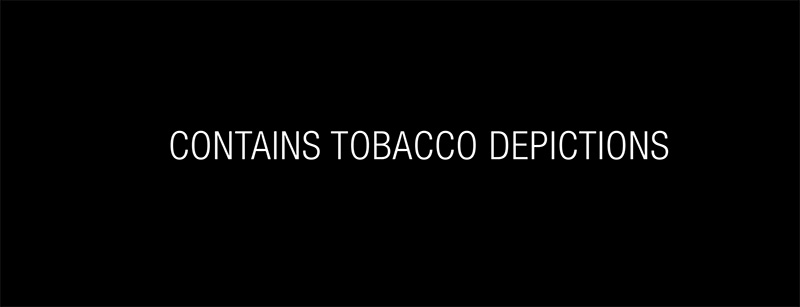
The movie begins with a stern warning about “tobacco depictions.”
Oh no! Not tobacco depictions! Considering the horrifying scenes we are about to witness, some guy smoking an old-timey pipe is the least of our concerns. This “warning” aptly reflects mass media always finding ways to be concerned about the wrong things while completely ignoring the blatant evil that’s staring right at us.
Right after this warning about *gasp* tobacco depictions, we see a woman committing suicide. I’m not joking.
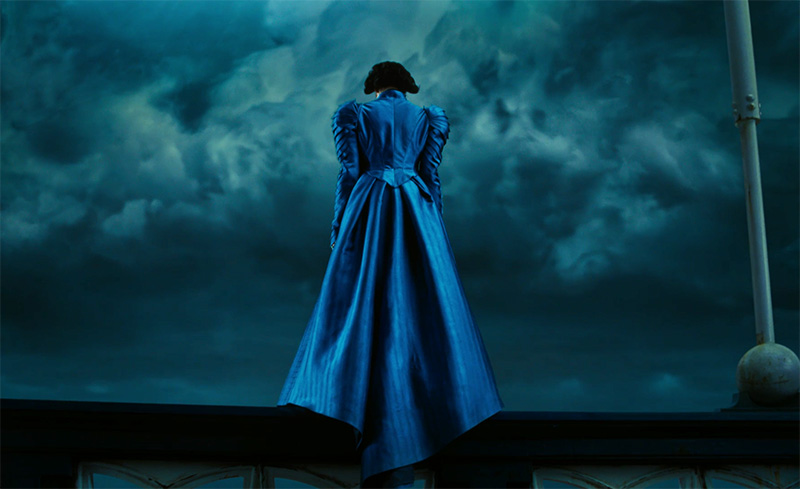
This woman throws herself off a bridge and dies. At least there were no “tobacco depictions” in the scene.
The woman was pregnant, and her body was recovered by a strange man everyone calls God.
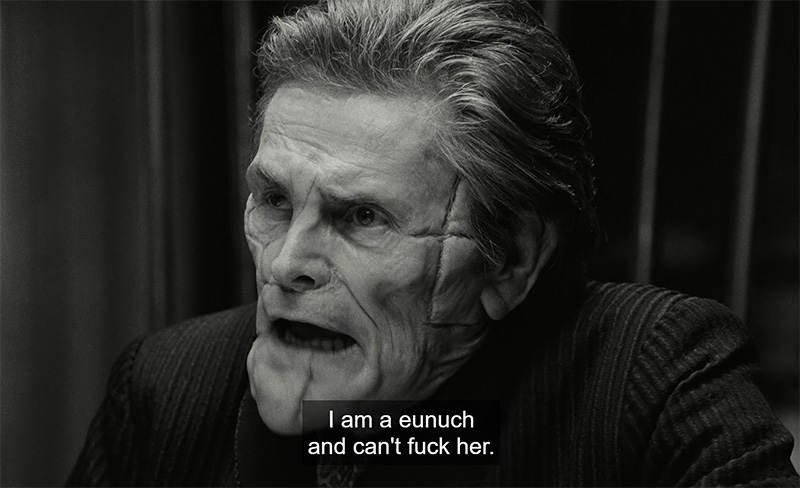
Godwin, aka God, is scarred and deformed due to experiments his father carried out on him. He’s also a eunuch, making him asexual.
The character being referred to as God underlies the fact that he’s the “creator” of Bella (and other things). He also likes to carry out experiments on humans, not unlike Josef Mengele.
Although everybody calls him God, a subtle dialog at the beginning of the movie hints at what’s actually happening here. While discussing with his student Max, Godwin asks:
– Are you a religious man?
– I believe in God.
– Me or the deity?
Then a woman crosses their path and, after looking at God’s deformed face, she says:
“The very Devil’s work”.
Godwin is not God. He plays God and, as such, is actually in opposition to the real God. As we’ll see, his entire body of work is about corrupting the natural order of things and creating abominations for “science.”
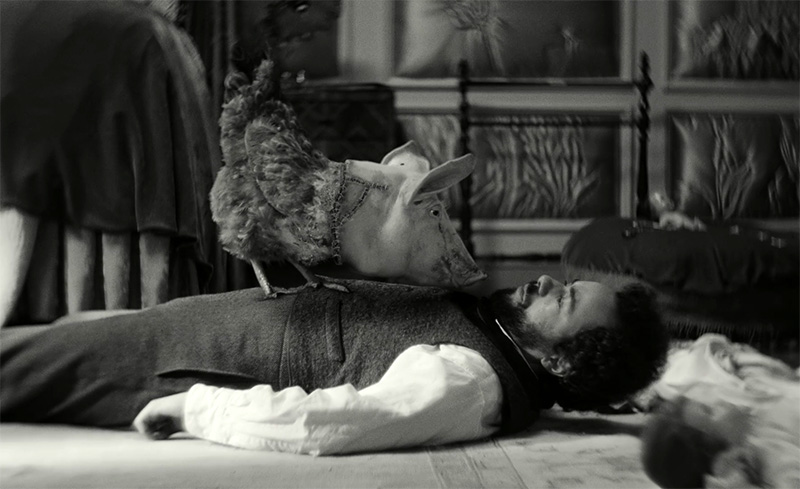
Around Godwin’s compound are numerous hybrid creatures that really shouldn’t exist.
But Godwin’s most important experiment is Bella Baxter.
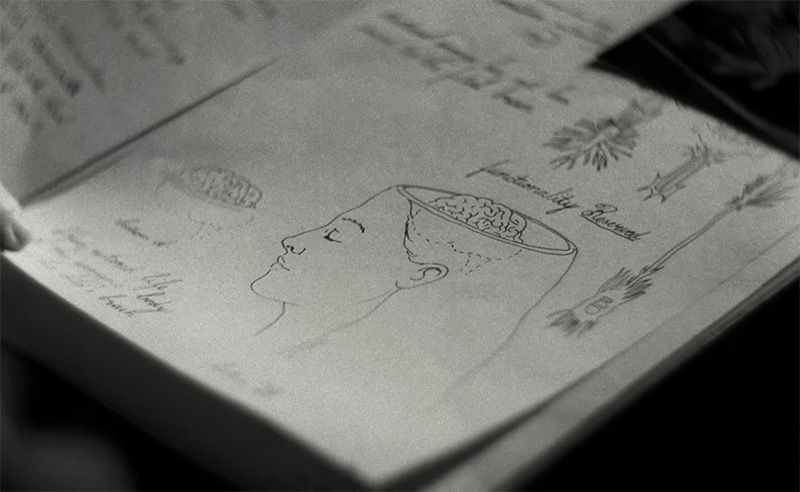
Remember the pregnant lady who committed suicide? Godwin placed the tiny brain of her unborn baby inside her head and reanimated her.
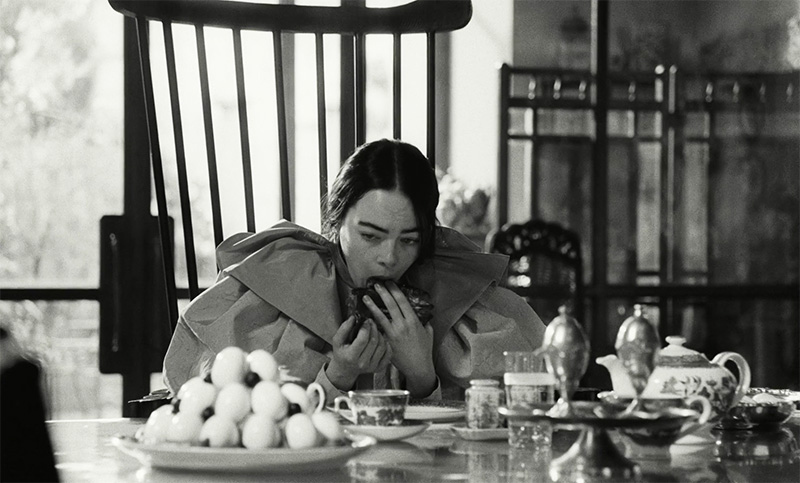
The result of the experiment is Bella, a literal baby inside a woman’s body.
A Pedophilia Loophole?
At the movie’s beginning, Bella can barely talk or walk, and at one point, she pees herself. She has the mental age of a toddler. But that doesn’t prevent men from lusting over her.
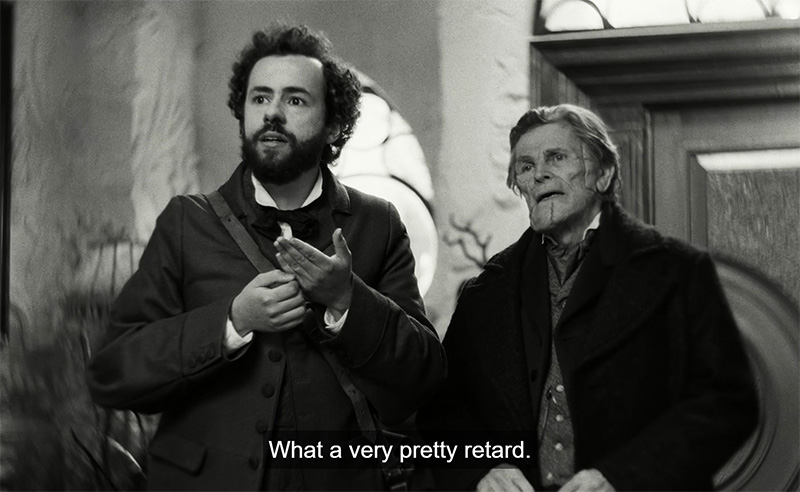
Even though Bella was spinning around like a child, Max says that she’s a “very pretty retard”. The same can be said about the rest of Hollywood, amirite guys?! OK, I’ll stop.
Right then, the movie stubbornly focuses on Bella’s sexuality, including scenes of her masturbating.
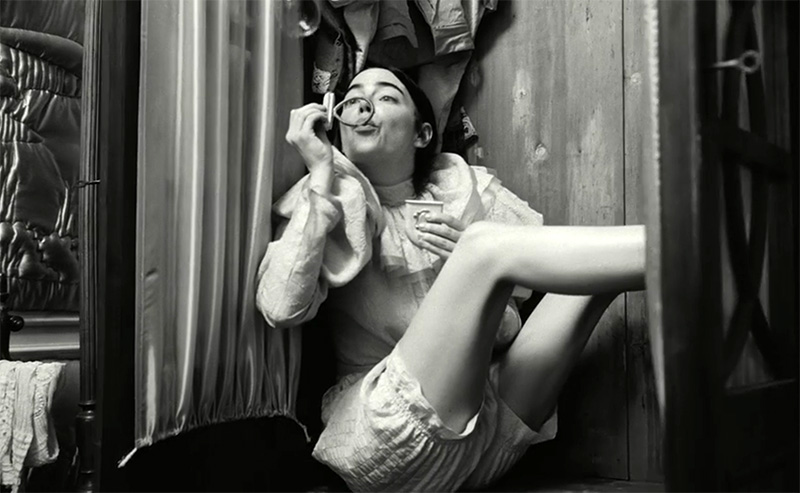
In one scene, Bella looks extra childish and innocent as she blows bubbles in her bedroom.
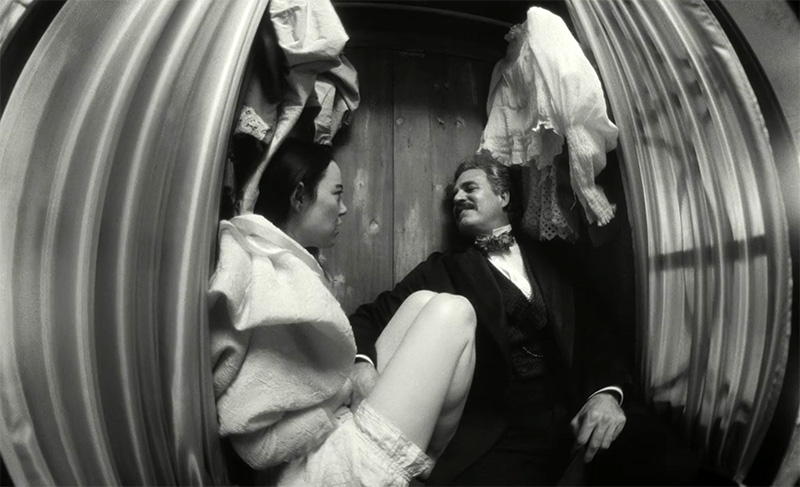
Then, a man called Duncan comes in, sits next to her, and touches her private parts.
Alright. Let’s stop for a second and ask ourselves: Is this pedophilia? Did the movie find a loophole to depict child sexuality in a mainstream movie by having a grown woman act it out? Yes, Bella has a woman’s body but is mentally a baby. Isn’t pedophilia morally reprehensible because children are innocent and cannot process these thoughts?
Before we can answer these important questions, Duncan takes Bella on an “adventure” in Lisbon, where we see them having sex in all kinds of positions.

In Lisbon, Emma Stone plays the role of a child having sex. You can rationalize all you want, but that’s what’s happening. And she won an Oscar.
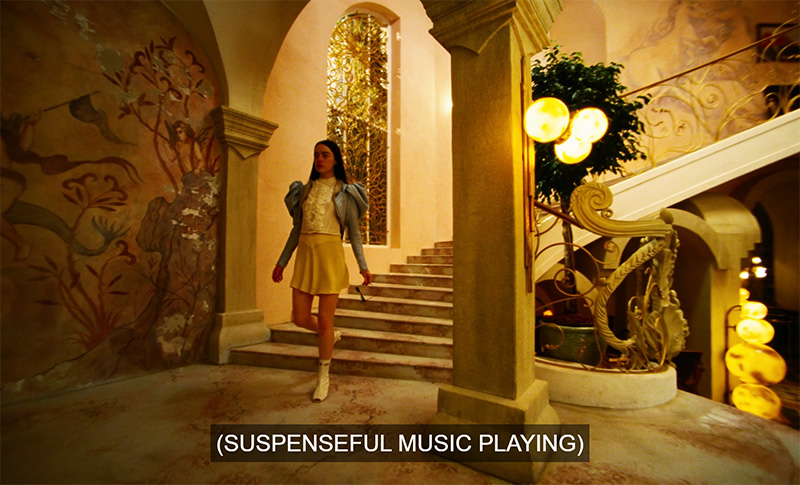
The sex scenes are intercut with Bella exploring Lisbon while looking like a child. She walks clumsily and awkwardly, heavily indicating that her brain is far from being adult.
In these scenes, Bella is a bit more coherent. She has the mental age of maybe an 8-year-old, and she calls sex “furious jumping.” While media critics found this term “endearing,” it mainly indicates that a child is having sex with 56-year-old actor Mark Ruffalo.
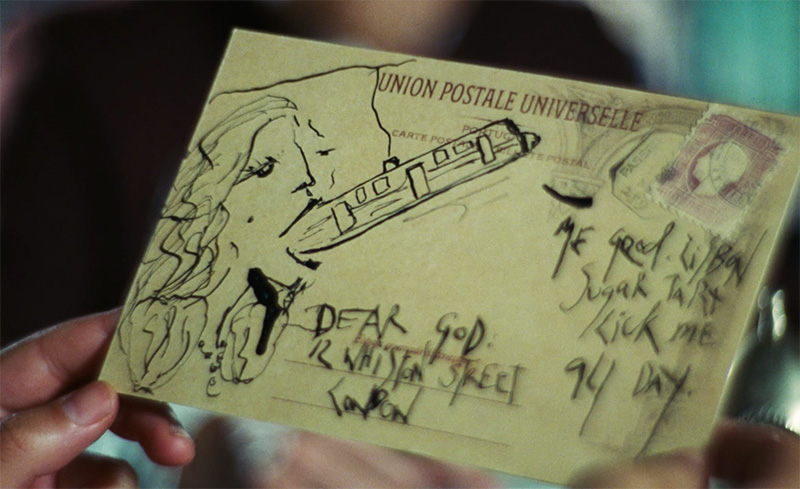
Bella sends postcards to her creator, God, on which she describes (in a childish matter) what she’s been up to. Yes, she’s fellating a train.
While Duncan was having fun at first, things soured quickly. Bella’s immature mind and promiscuous disposition led her to be intimate with another man. This caused Duncan to become bitter, jealous, and controlling. Meanwhile, Bella doesn’t even understand what is happening but she does know that she’s losing attraction to him.
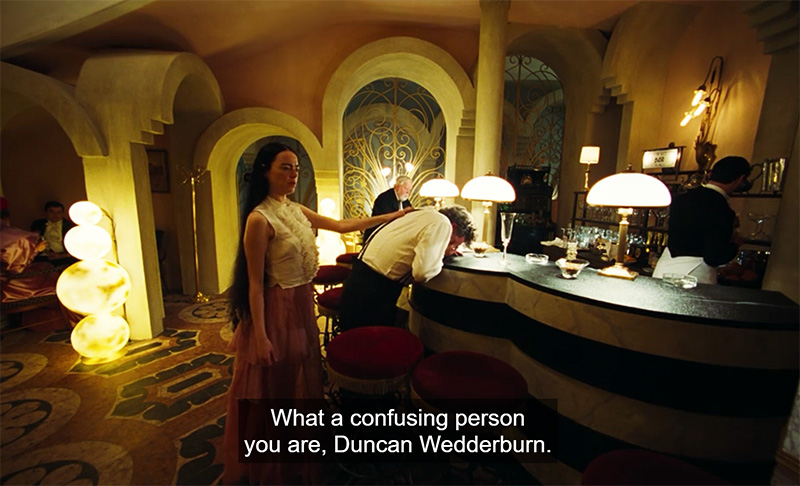
Bella doesn’t understand why Duncan is crying. She observes the world through the same cold scientific eyes of her creator, Godwin, devoid of emotions and morality.
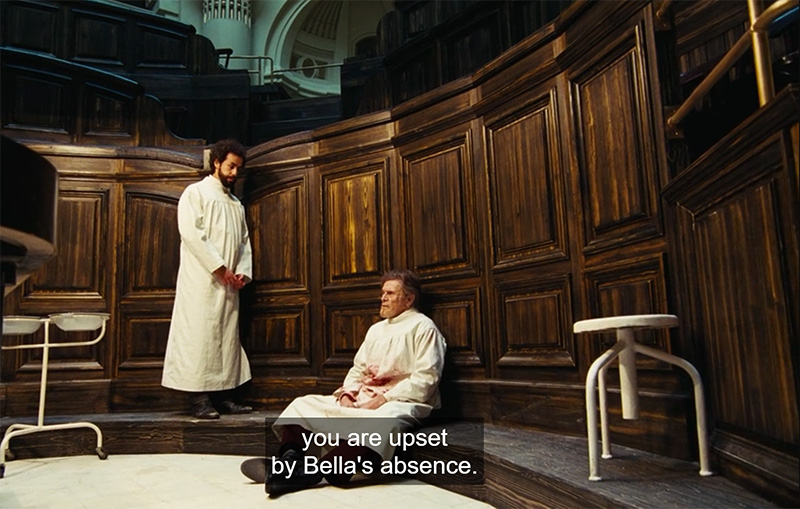
At home, Godwin and Max (who was supposed to marry Bella) are also sad and broken.
In a way, Bella cuckolds all the men who develop feelings for her and want to tie her down. At this point, we realize that a feminist narrative is emerging, and Bella’s development can be interpreted as the coming of age of a modern woman. More precisely, the elite’s vision of what a modern woman should be.
A Whore and a Socialist
To better control Bella, Duncan takes her on a cruise where her movements are confined to a boat. However, he cannot control her thoughts. As Bella’s mind matures, she is often seen reading a book—an image representing her desire to know the world. She also likes to engage in philosophical discussions with people she meets. Duncan doesn’t like that.
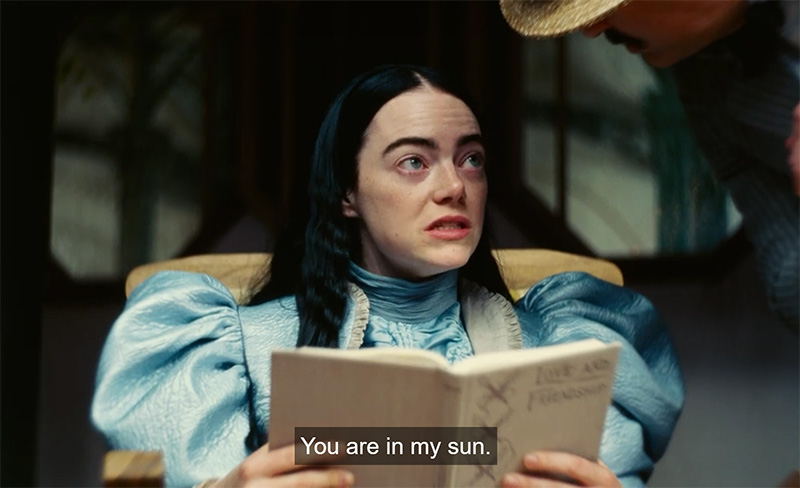
Bella tells Duncan to move because he’s blocking her sun. As the movie evolves, Duncan ends up representing the “patriarchy” that blocks women from educating their minds.
Bella’s new friends also show her a side of the world she’s never seen before.
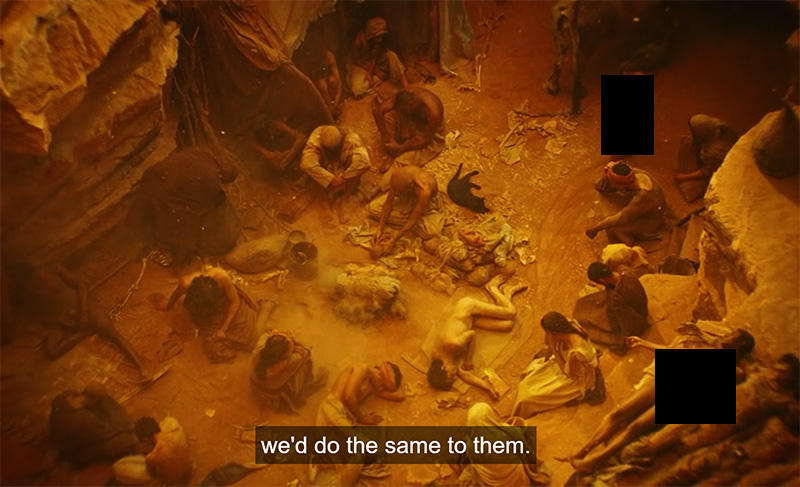
While stopped in Alexandria, Bella is shown the plight of poor people.
The “poor people scene” above is rather odd. It’s basically how a Hollywood person disconnected from reality would imagine “poor people.” In this tableau shot viewed from way above, helpless people are lying down in a slum while a person stacks a bunch of dead babies atop each other. This movie does not like children.
Witnessing this misery (from above) makes Bella sad, and she now wants to change the world. As we’ll soon see, the answer to her quest will be … socialism. Of course, we’re watching a Hollywood movie.
Meanwhile, Bella and Duncan are penniless in Paris. However, Bella quickly finds employment: Prostitute in a brothel. Indeed, the madam of the brothel had the perfect argument to convince Bella to work for her:
“If you need money, it’s the shortest route to do it.”
Considering that the concepts of loyalty and morality do not concern Bella, this logical argument makes perfect sense to her. Duncan disagrees.
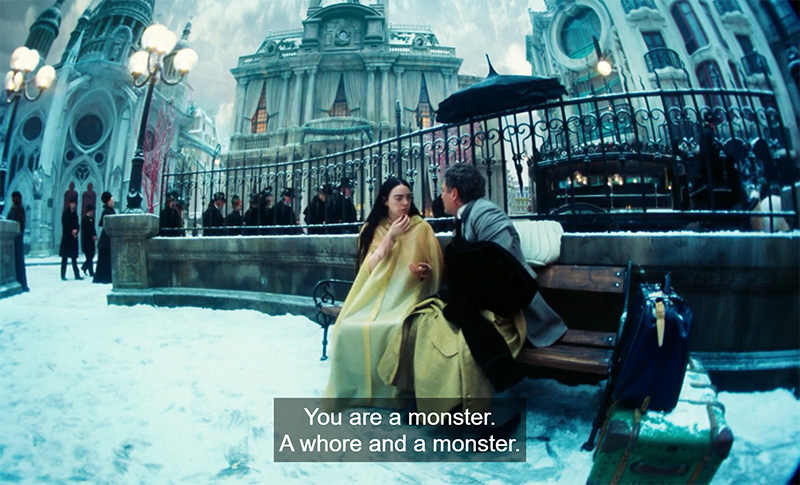
Duncan tells Bella that being a whore is the “worst thing women can do.”
On the other hand, the brothel’s madam says that Bella is “a woman plotting her course to freedom.”
In the feminist context of the movie, Bella becoming a prostitute is treated as an empowering move that’s in opposition to Duncan’s patriarchal control. It is also a way for Bella to discover herself and the world.
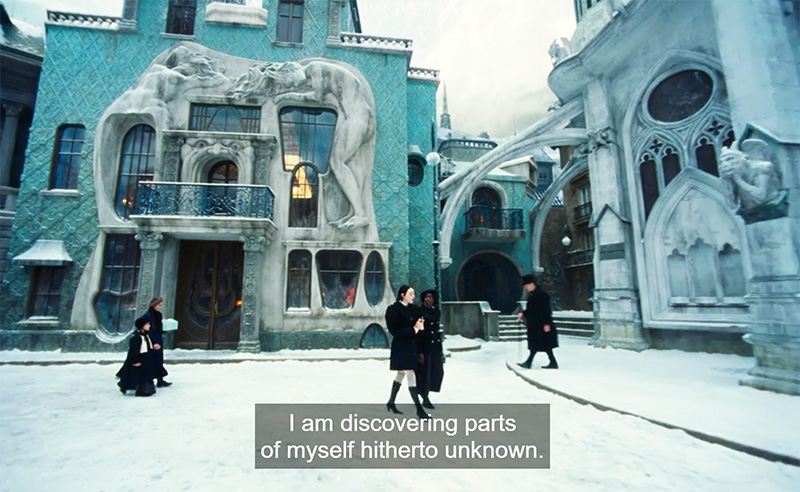
The brothel is physically connected to the church next to it. Is the movie trying to tell us something about Christianity?
The brothel’s madam also convinces Bella that the degrading things she must do for her clients are part of the “experience.”
“We must work. We must make money. But more than that, we must experience everything. Not just the good, but degradation, horror, and sadness. This makes us whole, Bella. It makes us people of substance, not flighty, untouched children. When we know the world, the world is ours. Now, go and f*ck someone.”
This quote sums up the movie’s core message, and there is much to unpack.
First, what’s wrong with “untouched children”? They’re supposed to be untouched. This movie DOES NOT like children.
Second, this quote reflects the dualistic worldview of the occult elite, where it is believed that the bad, the evil, and the horrific are of equal value as the pure, the good, and the godly. It is by uniting the two that a person becomes “illuminated.”
Finally, the madame probably doesn’t even believe in what she’s saying. She wants Bella to do degrading things so she can profit from her – the same way the elite wants us to believe in their indoctrination so they can profit from us.
The movie makes sure we see Bella being degraded in every way possible. Also, simultaneously, the viewers are watching actress Emma Stone being degraded as well. The movie’s insistence on depicting sex scenes involving the actress takes on a ritualistic dimension where she’s being initiated through humiliation.
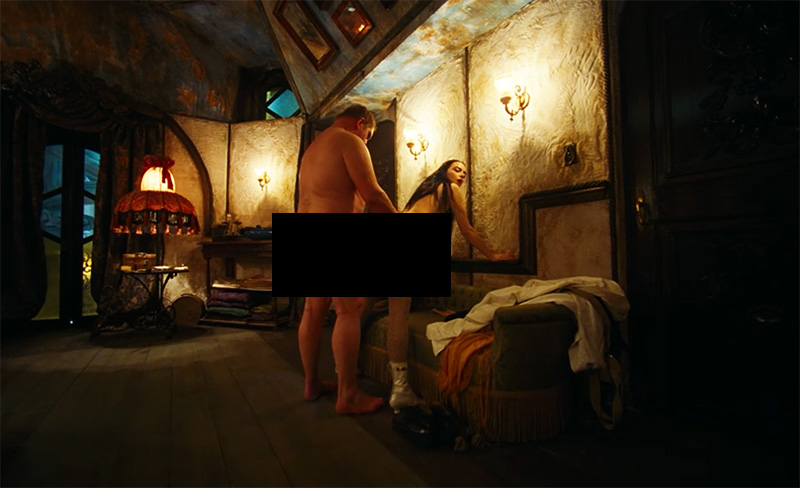
One of her clients is an older, rather gross butcher who smells awful. After the encounter, Bella says that the sex was “brutal in a strangely not unpleasant way.”
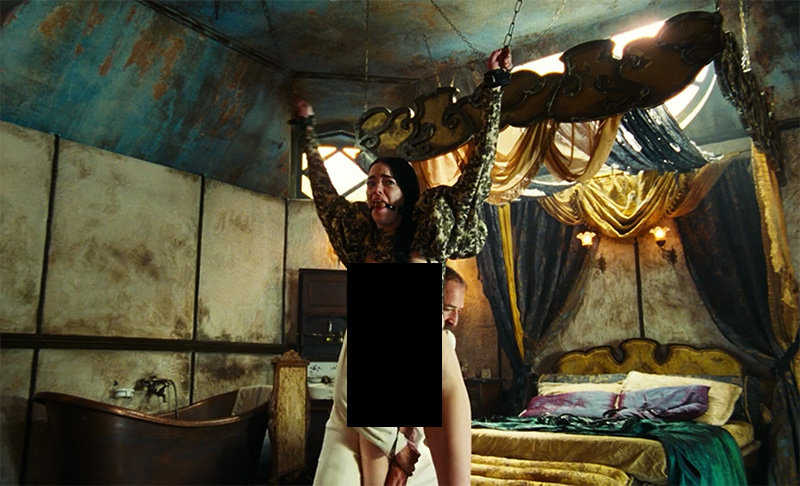
Bella (and Emma Stone) gets humped on by this guy while the audience is treated with full frontal nudity. Apparently, that’s what you need to do to win an Oscar nowadays.
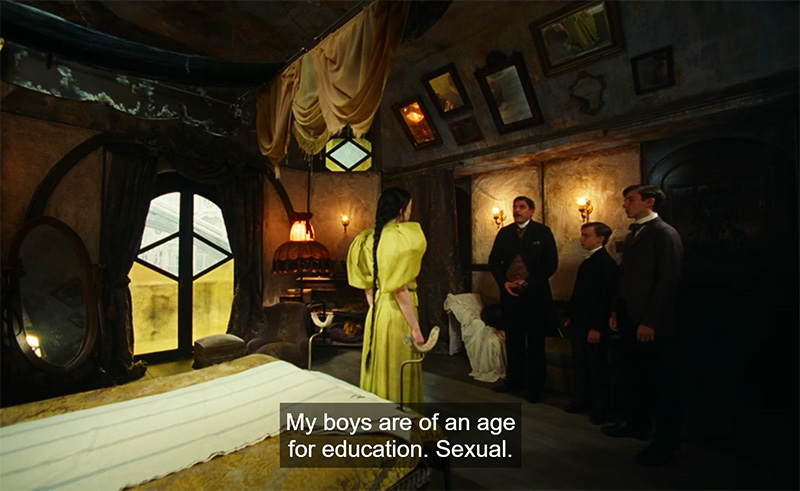
In another scene, a father has sex with Bella in front of his children for “education.” While doing it, Bella gives sex advice to the boys who sit there and watch. More sexualization of children.
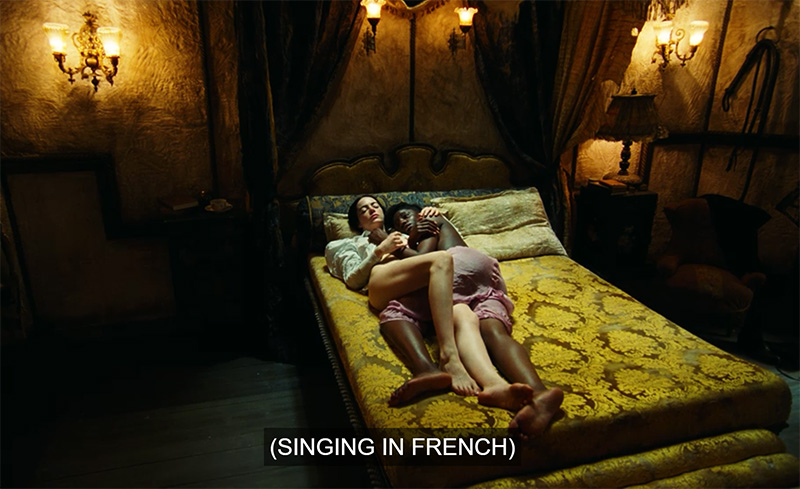
Also, Bella discovers that she’s bisexual. Of course.
Bella’s girlfriend is a socialist. She tells Bella that a socialist is “someone who wants to change the world for the better.” To which Bella instantly replies:
“Then I am that too.”
The movie’s unabashed promotion of a specific political current is odd but unsurprising. Poor Things is not mere entertainment; it is creative indoctrination. In case you didn’t notice, the elite has been hard at work trying to create a socialist world government. They want us to associate the word socialist with “changing the world for the better.” If the movie had promoted any other political current, the movie would have been shunned.
So, Bella reflects what the elite want women to be. However, her actions cause Duncan to lose his mind completely.
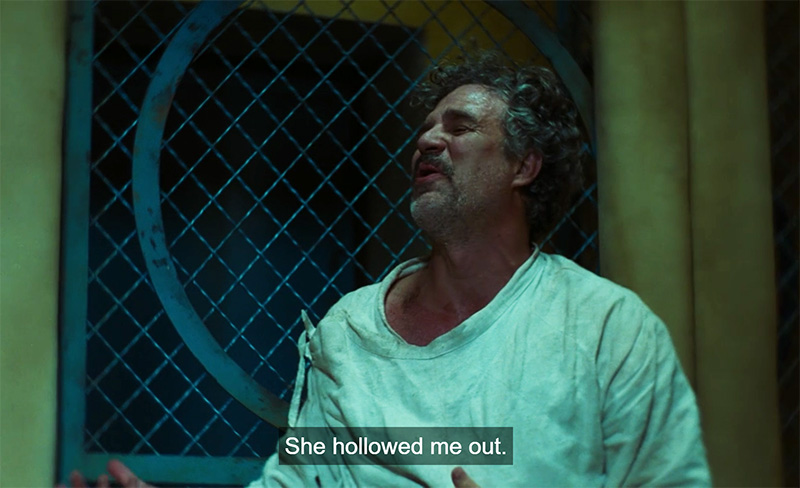
Duncan ends up in the looney bin.
While Bella is the creation of a man dubbed God, Duncan sees in her the exact opposite:
“He has sent a demon at a large into the world. The devil wrapped in an alluring body that cannot be satieted and a mind that picks people apart stitch by stitch like a bloodied and burned rag doll shat out of an elephant’s arse.”
While the “demon” is at large, her creator is dying.
God is Dead
When Bella learns that God is dying of cancer, she leaves Paris and travels back to London. The fact that God dies in the movie is symbolic as, in the elite’s philosophy, men are gods.
In London, Bella reconnects with Max, with whom she was engaged before she left.
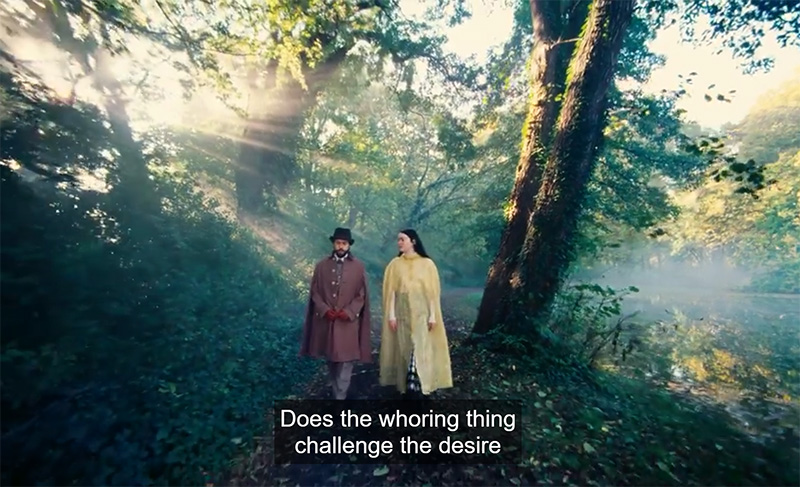
Bella asks Max if “the whoring thing challenges the desire for ownership that men have.”
Again, her being a prostitute is framed as some feminist power move that goes against the desire of men to own women. Max says he’s okay with it because it’s “her body.”

Although they get married in a church, the black-and-white pattern inside of it indicates that this is actually about the occult elite’s dualistic “religion.”
After God’s death, Bella takes over as the mad scientist. In the final scene, everything ends perfectly according to the elite’s vision for humanity.
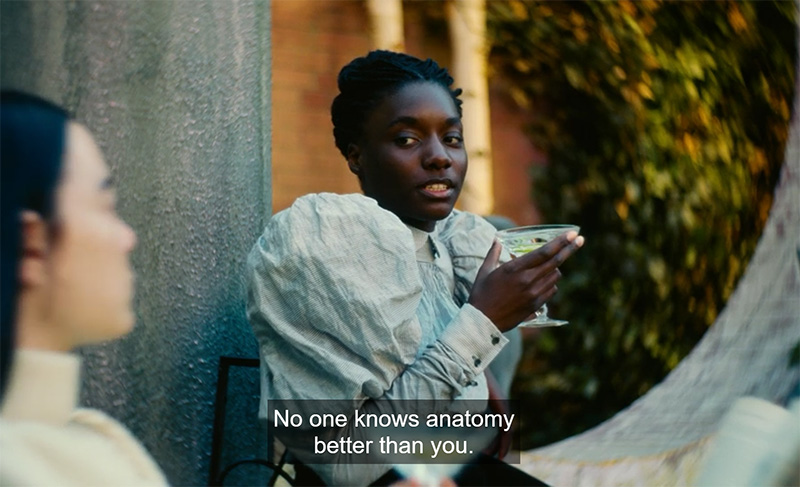
Bella lives with her socialist lesbian lover.

Bella placed the brain of a goat into the head of her mother’s controlling husband. This man is technically Bella’s father. But not anymore. He’s a goat now.

The movie ends with a shot of Bella reading. She is now an accomplished socialist bisexual lady. Every man who tried to control her is either dead or completely broken. Or a goat.
The end.
In Conclusion
There’s a reason why mass media tastemakers celebrate Poor Things: It reflects the culture and mindset the elite is looking to force on the masses. It is representative of a society that is steadily straying away from everything pure and natural to embrace the sick, the twisted, and, yes, the ungodly. From God’s distorted face to the hybrid animal monstrosities running around to Bella awkwardly walking with an infant’s brain – everything we see is in complete opposition to the natural order of things.
But that distortion is not merely esthetic. The movie also obsesses over twisted concepts such as the sexualization of children and female “empowerment” through sexual degradation. In this movie, a child discovering the world does not play around in nature; it plays with a dead man’s penis while stabbing him in the eyes. Of course, not all movies need to portray happy, pretty things. But Poor Things’ core message is that these disturbing things are good and desirable in an enlightened society.
At least the movie got something right: It warned us about “tobacco depictions.”
- Hmm 🤔
- Donald Trump attends WEF conference in Davos (January 2020)
- 100% Proof Our Government is Hiding Nephilim Bodies & Are Trying to Bring Back Nimrod/Gilgamesh. Could Nimrod be the Beast of Revelation 17:8-11?
- Tesla's Elon Musk: We're 'Summoning the Demon' with Artificial Intelligence
- Lindsay Mills : Are you aware of occult symbolism in Her pictures..?!?
- LA Fire Attack Map is identical to the LA Smart City Rail Map
- Birds of a feather flock together …
Get an e-mail notification as soon as a new article is published on The Vigilant Citizen.
-

 Movies and TV2 months ago
Movies and TV2 months agoAdrenochrome and Ritual Humiliation: The True Meaning of the Movie “The Substance”
-

 Pics of the Month3 months ago
Pics of the Month3 months agoSymbolic Pics of the Month 10/24
-

 Latest News2 months ago
Latest News2 months agoKamala’s Campaign Was Objectively the Worst in Recent History
-
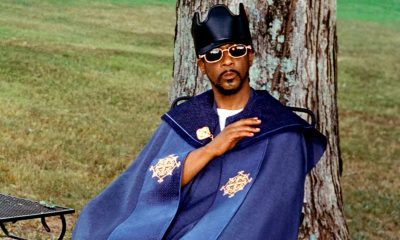
 Pics of the Month2 months ago
Pics of the Month2 months agoSymbolic Pics of the Month 12/24
-

 Latest News2 months ago
Latest News2 months agoWas the Jake Paul vs Mike Tyson Fight a Humiliation Ritual?
-

 Latest News3 months ago
Latest News3 months agoAn “Urban Opera” in Toulouse Using Massive Machines is Denounced as a Satanic Ritual
-

 Movies and TV1 month ago
Movies and TV1 month agoThe Hidden Meaning of “Smile 2”: It’s About Monarch Mind Control
-

 Latest News1 month ago
Latest News1 month agoIt Was Bound to Happen: Jay-Z Accused of Abusing a 13-Year-Old Girl















